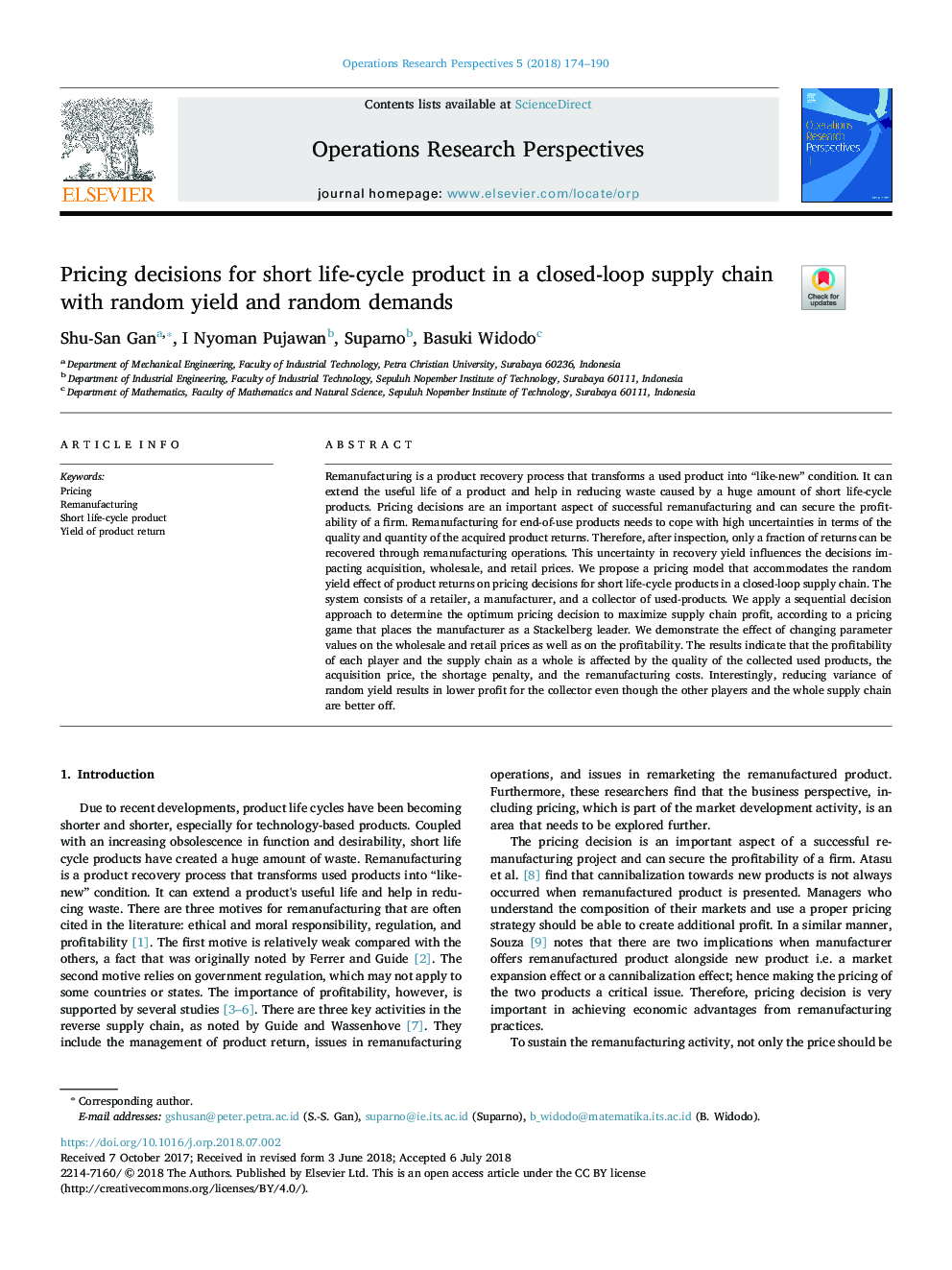| کد مقاله | کد نشریه | سال انتشار | مقاله انگلیسی | نسخه تمام متن |
|---|---|---|---|---|
| 6899192 | 1446478 | 2018 | 17 صفحه PDF | دانلود رایگان |
عنوان انگلیسی مقاله ISI
Pricing decisions for short life-cycle product in a closed-loop supply chain with random yield and random demands
ترجمه فارسی عنوان
تصمیم گیری های قیمت گذاری برای محصول کوتاه مدت در یک زنجیره تامین حلقه بسته با عملکرد تصادفی و تقاضای تصادفی
دانلود مقاله + سفارش ترجمه
دانلود مقاله ISI انگلیسی
رایگان برای ایرانیان
کلمات کلیدی
قیمت گذاری، بازسازی، محصول چرخه عمر کوتاه، تولید بازگشت محصول،
موضوعات مرتبط
مهندسی و علوم پایه
مهندسی کامپیوتر
علوم کامپیوتر (عمومی)
چکیده انگلیسی
Remanufacturing is a product recovery process that transforms a used product into “like-new” condition. It can extend the useful life of a product and help in reducing waste caused by a huge amount of short life-cycle products. Pricing decisions are an important aspect of successful remanufacturing and can secure the profitability of a firm. Remanufacturing for end-of-use products needs to cope with high uncertainties in terms of the quality and quantity of the acquired product returns. Therefore, after inspection, only a fraction of returns can be recovered through remanufacturing operations. This uncertainty in recovery yield influences the decisions impacting acquisition, wholesale, and retail prices. We propose a pricing model that accommodates the random yield effect of product returns on pricing decisions for short life-cycle products in a closed-loop supply chain. The system consists of a retailer, a manufacturer, and a collector of used-products. We apply a sequential decision approach to determine the optimum pricing decision to maximize supply chain profit, according to a pricing game that places the manufacturer as a Stackelberg leader. We demonstrate the effect of changing parameter values on the wholesale and retail prices as well as on the profitability. The results indicate that the profitability of each player and the supply chain as a whole is affected by the quality of the collected used products, the acquisition price, the shortage penalty, and the remanufacturing costs. Interestingly, reducing variance of random yield results in lower profit for the collector even though the other players and the whole supply chain are better off.
ناشر
Database: Elsevier - ScienceDirect (ساینس دایرکت)
Journal: Operations Research Perspectives - Volume 5, 2018, Pages 174-190
Journal: Operations Research Perspectives - Volume 5, 2018, Pages 174-190
نویسندگان
Shu-San Gan, I Nyoman Pujawan, Suparno Suparno, Basuki Widodo,
